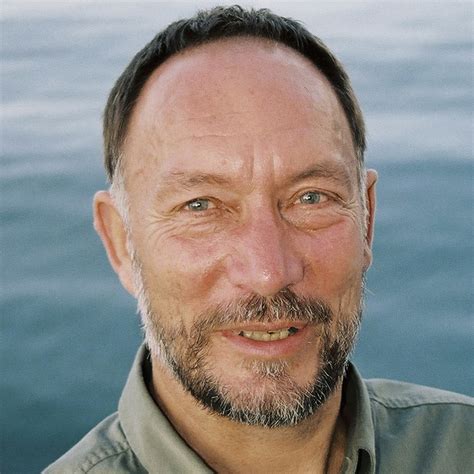A Quote by Mihaly Csikszentmihalyi
A person can make himself happy, or miserable, regardless of what is actually happening 'outside,' just by changing the contents of consciousness.
Related Quotes
If you are happy, you are happy; nobody asks you why you are happy. Yes, if you are miserable, a question is relevant. If you are miserable, somebody can ask why you are miserable, and the question is relevant - because misery is against nature, something wrong is happening. When you are happy, nobody asks you why you are happy, except for a few neurotics. There are such people; I cannot deny the possibility.
Distraction is our habitual state. Not the distraction of the person who withdraws from the world in order to shut himself up in the secret and ever-changing land of his fantasy, but the distraction of the person who is always outside himself, lost in the trivial, senseless, turmoil of everyday life.
A happy but miserable state in which man finds himself from time to time; sometimes he believes he is happy by loving, then suddenly he finds how miserable he is. It is all joy, it sweetens life, but it does not last. It comes and goes, but when it is active, there is no greater virtue, because it makes one supremely happy.
It's natural for a person to deny he's a failure as a human being. That's why he searches for somebody who is more miserable than himself. That's why so much animosity exists on the Internet. Those who aren't able to find a more miserable person turn to the Internet and call other people losers, even though they've never met just to make themselves superior. Isn't that pathetic? There's a sense of security that comes from speaking badly of someone else. But that isn't true salvation.
Meditation is enjoying oneself, just sitting silently doing nothing: happy, joyous without any reason, because all reasons come from outside. You meet a beautiful woman and you are happy, or you meet a beautiful man and you are happy - but the meditator is simply happy. His happiness has no reason from the outside world; his happiness wells up within himself.
Although I have no objection to accepting the existence of relatively constant psychic contents that survive personal ego, it must always be born in mind that we have no way of knowing what these contents are actually like "as such." All we can observe is their effect on other living people, whose spiritual level and whose personal unconscious crucially influence the way these contents actually manifest themselves.
-Please, Anita, go home, and don’t freak. Just go home, and be happy. Be happy, and let everyone around you be happy. Is that so hard? When Jason said it like that, it didn’t seem hard. In fact, it seemed to make a lot of sense, but inside, it felt hard. Inside it felt like the hardest thing in the world. To just let go, and not pick everything to death. To just let go and enjoy what you had. To just let go and not make everybody around you miserable with your own internal dialogue. To just let go and be happy. So simple. So difficult. So terrifying.
Daisy was a consciously happy young woman without any of the usual endowments that make for conscious happiness, money apart. She was not pretty, she was not clever, she had no friends, no talents, nor even an imagination to make her think she was happy when she was really miserable. As she was never miserable, she had no need of an imagination.
It feels very different to have long, thick, brightly colored hair. It makes me feel so conflicted to wear, and I believe showing a conflicted person onstage is actually really interesting and emotionally engaging. I'm trying to not just be the person standing on the outside and looking at something, but to actually be it, in a way.



































